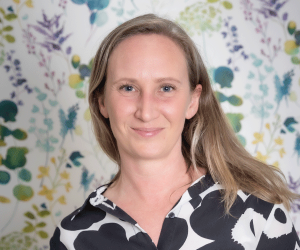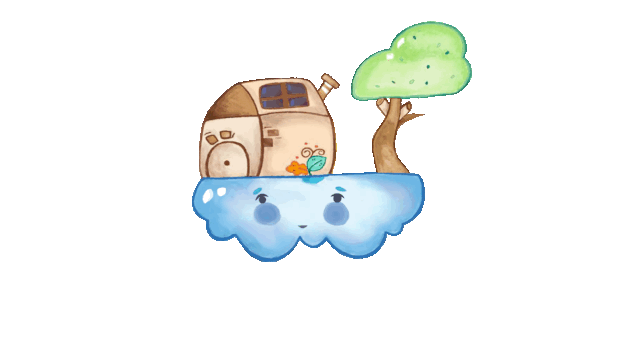
What Is Therapy?
By Dr Lisa Wittenhagen

If you’re considering therapy for yourself or your child for the first time, it’s natural to feel a little overwhelmed and lost with the amount of information out there. This blog was designed to act as a crash course in what therapy is, introduce you to the most common therapeutic approaches, and explain what psychologists do and what psychology is as a whole.
What is Therapy?
Psychotherapy involves working with a psychologist to address emotional, psychological, or behavioural challenges that may be causing distress or interfering with a person’s ability to function effectively in their daily life. The modern usage of “therapy” as a treatment for mental and emotional issues dates back to the late 1800s, with the emergence of psychoanalytic and other forms of talk therapy. Other forms of therapy emerged in the decades that followed, including behaviour therapy, which focuses on observable behaviours and their relationship to environmental factors, and cognitive therapy, which emphasizes the role of thinking patterns in shaping emotional responses and behaviour.
Nowadays, therapy can take many different forms, depending on the needs of the individual and the approach of the therapist. Your psychologist will work with you to decide which therapy form might be best for you, and may draw on multiple methods and techniques depending on your preferences and needs. Psychologist use evidence-based interventions that can be a highly effective treatment for a range of mental health issues, including anxiety, depression, trauma, emotion regulation, substance abuse, and relationship problems, among others. The goal of therapy is to help individuals gain insight into their thoughts, feelings, and behaviours, and to support the client to develop strategies for coping with challenges and improving their social and emotional wellbeing.
At Therapy House, our psychologists offer individual, group, and couples’ therapy. Our psychologists work with children, adolescents, as well as adults to address mental health challenges including anxiety, depression, anger, or relationship issues. All our clinicians thrive to work collaboratively with other healthcare professionals (such as GPs, paediatricians and psychiatrists), or other important persons in your network.
Types of Therapy
Cognitive Behavioural Therapy (CBT)
Cognitive Behavioural Therapy is a form of psychotherapy that focuses on the relationship between thoughts, emotions, and behaviours. CBT is based on the idea that our thoughts and beliefs about ourselves, others, and the world around us can influence our emotions and behaviours, and that by changing these thoughts and beliefs, we can improve our mental health and wellbeing.
CBT is typically a short-term, goal-oriented therapy that involves working with a therapist to identify and challenge negative or irrational thoughts and beliefs, and to develop more positive and realistic ways of thinking. This may involve techniques such as identifying and testing negative automatic thoughts, developing coping strategies for dealing with difficult emotions, and practicing behavioural experiments to test the accuracy of negative beliefs.
CBT has been shown to be effective in treating a wide range of mental health conditions, including anxiety disorders, depression, post-traumatic stress disorder (PTSD), and obsessive-compulsive disorder (OCD), among others.
There is a large body of research that supports the effectiveness of CBT in treating these and other mental health conditions. Studies have found that CBT can be as effective as medication in treating certain types of depression and anxiety, and that it can also be effective in reducing symptoms of PTSD, particularly when combined with other treatments such as exposure therapy.
CBT is a well-established form of psychotherapy that has been widely used and studied for several decades, and it is often recommended as a first-line treatment for many mental health conditions. However, it is important to note that not all individuals will respond equally to CBT, and that other forms of therapy or treatment may be more appropriate for certain individuals or conditions.
Emotion Regulation
Emotion regulation refers to the process of managing and controlling one’s emotions, both in terms of the intensity and duration of emotional experiences, as well as the actions and behaviours that result from those emotions.
Effective emotion regulation involves a range of strategies and skills, including the ability to identify and label one’s emotions, the ability to tolerate and accept uncomfortable emotions without becoming overwhelmed, and the ability to modulate emotional responses in a way that is appropriate to the situation.
There are a variety of techniques and strategies that can be used to regulate emotions, including cognitive reappraisal, which involves reframing or reinterpreting the meaning of an emotional event or situation; mindfulness meditation, which involves cultivating a non-judgmental awareness of one’s thoughts and emotions; and physical techniques such as deep breathing or progressive muscle relaxation, which can help to reduce physiological arousal and promote feelings of calm.
Effective emotion regulation is important for overall well-being, as difficulties with regulating emotions have been linked to a range of mental health problems, including anxiety, depression, and substance use disorders.
Acceptance and Commitment Therapy (ACT)
Acceptance and Commitment Therapy is a form of psychotherapy that emphasises the importance of accepting difficult thoughts and emotions rather than trying to suppress or control them.
ACT is based on the idea that trying to control or eliminate unpleasant thoughts and emotions is often counterproductive and can lead to greater suffering. Instead, the goal of ACT is to help individuals learn to accept these experiences as normal and natural parts of the human experience, while also taking action to live in accordance with their values and goals.
ACT uses a range of techniques to help individuals develop greater psychological flexibility, including mindfulness exercises, values clarification exercises, and experiential exercises that help individuals observe their thoughts and emotions in a non-judgmental way. The ultimate goal of ACT is to help individuals live more fully in the present moment, engage in meaningful actions that are consistent with their values, and develop greater psychological resilience in the face of life’s challenges.
There is a growing body of research that supports the effectiveness of Acceptance and Commitment Therapy (ACT) for a wide range of mental health conditions, including anxiety disorders, depression, chronic pain, and substance use disorders, among others.
ACT has also been found to be effective in helping individuals develop greater psychological flexibility, which is the ability to adapt to changing circumstances and respond effectively to difficult thoughts and emotions. This can help individuals better manage symptoms of mental health conditions, improve interpersonal relationships, and achieve greater overall well-being.
What is Psychology?
Psychology is the scientific study of human behaviour, thoughts, emotions, and mental processes. It involves the investigation of individual and group behaviour, as well as the underlying psychological and biological processes that influence behaviour.
Psychologists use a range of research methods and techniques, such as observation, experimentation, and surveys, to understand and explain various aspects of human behaviour and mental processes. They may study topics such as cognition, perception, motivation, personality, social behaviour, and mental disorders, among others.
Psychology is a diverse field that encompasses many different subfields and approaches, including clinical psychology, cognitive psychology, developmental psychology, and social psychology, among others. It has practical applications in a wide range of fields, including healthcare, education, business, and law.
What do Psychologists do?
Psychologists work in a variety of settings, including hospitals, mental health clinics, private practices, schools and universities.
Some psychologists may specialise in working with specific people, such as children, adolescents, or older adults. On the other hand, some psychologists may specialise or addressing specific issues, such as anxiety, depression, trauma, or addiction. Psychologists tend to work collaboratively with other healthcare or educational practitioners, such as GPs, psychiatrists, school counsellors, social workers, or teachers to ensure the best outcomes for their clients.
At Therapy House, we have a talented group of clinicians including a Clinical Psychologist, General Psychologist and Provisional Psychologists with a wealth of experience in treating people across the lifespan. Find out more about our team here, and if you have any questions about beginning the therapy journey, don’t hesitate to contact us!




